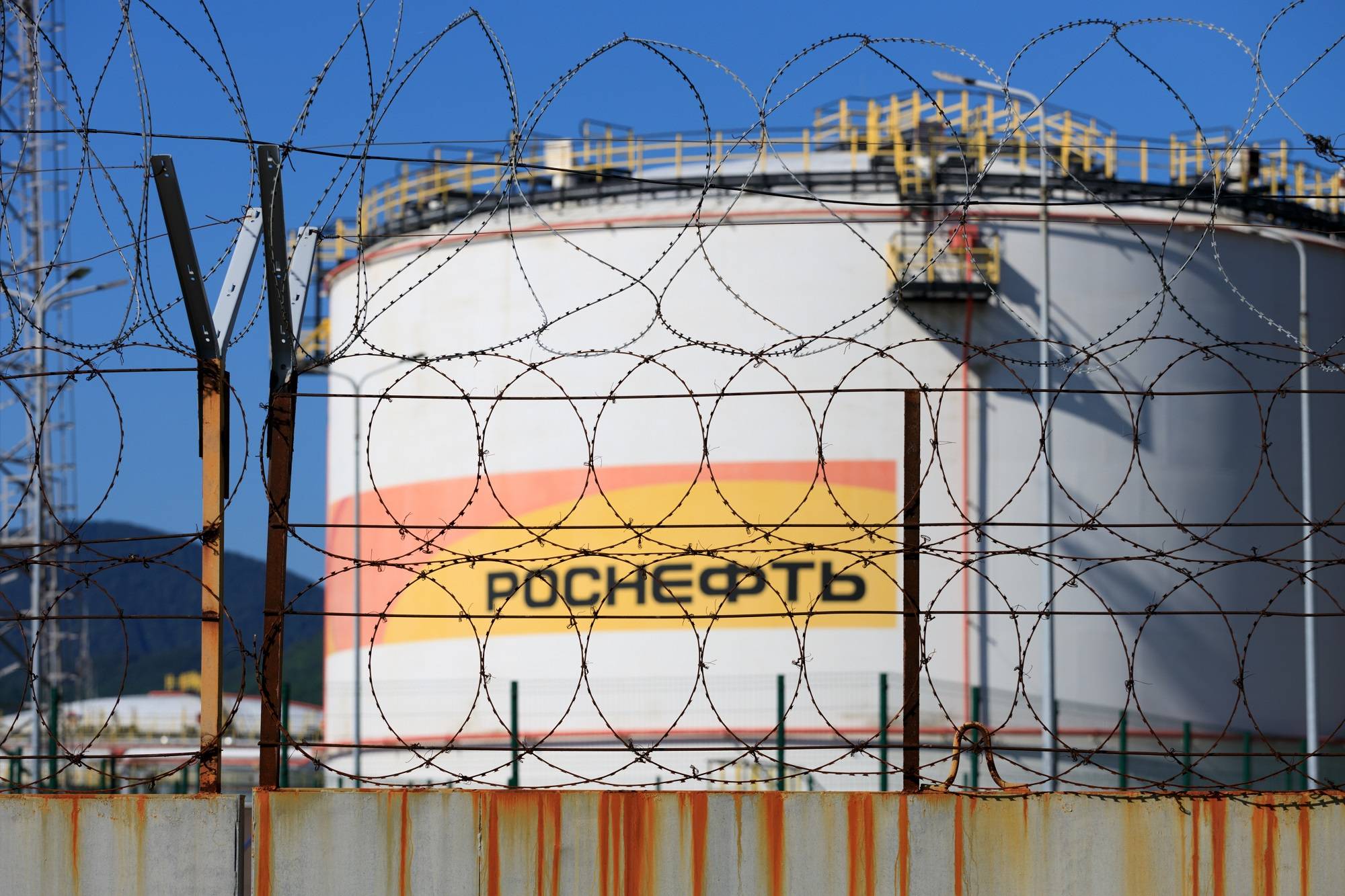Attempts to limit offering Russian oil for consumption within the framework of sanctions imposed by the Western countries and their allies, most likely, will not end up with fulfilment of hopes of Russia and its sympathizers concerning rise in the price of the black gold and global increase in cost of living.
Reason behind this is very simple. Oil price changes at commodity exchanges, including those trading in oil, are based on potential future events, and, as far as price limits on the oil originating from our neighbouring country are concerned, market has taken this into account already in advance. For example, in case of sudden interruptions of supply or any concerns in this regard, oil market would react by soaring prices. As for now, most likely, nothing like that is expected, at least as long as stable rise in price is concerned. Actually, while everybody was aware of the expected limits on the flow and prices of Russian oil, market has steadily moved towards decrease in price. At the moment, a barrel of North Sea crude oil at Brent costs USD 79-80 or approximately 17% below the price which was right before the Russia’s repeated invasion of Ukraine.
Positively for consumers
It was common before that Russia provided approximately 10 per cent of the global oil deliveries, and such a cutback theoretically should cause a major market deficit. Along with the agreement reached between the EU and the G7 countries, as well as Australia at the end of last week to introduce a price cap on Russian crude oil at USD 60 per barrel, market could face certain shocks, if the Eastern neighbour would not agree to such a scenario. However, oil market operates according to the “law of connected vessels” and is sufficiently mobile. Thus, for example, Europe would gain black gold even if Russia refused deliveries. Furthermore, Russia itself is also not able to live without oil exports, since it would make functioning of the state a lot more difficult, let alone speak about continuing war in Ukraine. Therefore, export of Russian oil will continue, but its final destinations will change to a certain extent. At the same time, prohibition of the aforementioned nations and associations of nations to insure and serve transportation of Russian oil where price exceeds USD 60 per barrel means additional complications for Russia, as well as possible benefits for some “third country” oil carriers. There is another major aspect – seeing the sanctions imposed by the West and their allies, even the so called Russia’s “friends” – China, India and other – will not try to pay for Russian oil much higher prices than the aforementioned USD 60 per barrel regardless of the market situation. Actually, even before the imposition of sanctions, Russian oil was traded under the aforementioned level USD 60 per barrel. One way or another, trying to “snatch away” the largest piece under the current war and sanction situation, China and India as large oil buyers will push down also the overall price level. It is interesting that rise in oil price is not stimulated event by the fact that, following stricter demands of Turkey within the framework of the aforementioned Western sanctions, approximately 20 tankers carrying oil originating from Kazakhstan and Russia have stuck in the Black Sea.
Falling to go on
The circumstances already originated and still originating for drop in oil prices have, to a certain extent, also “tied hands” of OPEC+ countries, which have already announced their decision not to change the production volumes and keep the previous course. Traditionally, in their effort to maintain favourable price level, oil exporters announced production cut, thus trying to increase the prices or keep at the previous level. Now, such an announcement is in vain, because production cut would turn against the exporting countries themselves. At the beginning of the war, these countries were glad about the price increase and at least mostly refused to increase production, because – why would they do that, when they can make more money at a lower input. The current situation has turned into such a state that low oil production means low export income. Therefore, there is no point to retain oil, it should rather be sold as soon and as much as possible. At the moment, we cannot even rule out that situation on the oil market can develop according to the 2014-2015 scenario. In the middle of 2014, after success of the fighters of the Islamic State, capturing larger and larger territories in Syria and Iraq, oil price reached the highest point at that time above 115 US dollars per barrel. A year later, price had dropped to approximately 65 US dollars, but at the beginning of 2016 – even below 30 dollars per barrel thanks to entry of the US shale oil into the market. This process resulted in competition between the existing exporters for maintaining their market shares, and the price naturally decreased. This time, shale oil can also be of some help, but the expected recession in the US and the rest of the world can serve as a more effective price dropping factor, as commented by managing officials of separate Wall Street investment banks. Furthermore, the situation grows more complicated because of further development perspectives of Chinese national economy, and in case of collapse of housing construction market in this country, the already shrinking demand for oil products would decrease significantly. Thus, signals sent to traders at the commodity exchanges, are not unequivocally such that would send signals in favour of purchase of oil contracts, rather the opposite, and it cannot be fully ruled out that price of the black gold at the exchanges will approach the level of 70 US dollars per barrel.
Rolands Petersons, logistics expert




